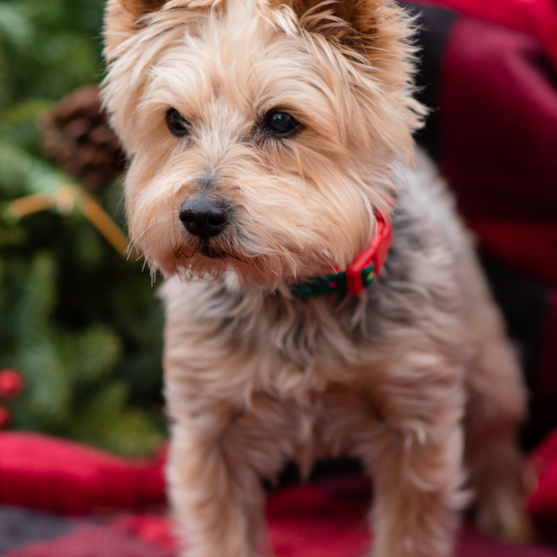Yorkie Breed Information


The Yorkshire Terrier, commonly known as the "Yorkie", is a small lap dog breed originally bred in Yorkshire, England. They are known for their long, silky coats and playful and affectionate personality. They are loyal and intelligent, making them great companions for singles, seniors, and families. Despite their small size, they have a big personality and can make great watchdogs. They do require regular grooming due to their long hair but are otherwise low-maintenance. They are adaptable to different living situations and can be trained to live in apartments or larger homes.
Characteristics
- The Yorkshire Terrier is a small breed, weighing between 4 to 6 pounds and standing 8 to 9 inches tall at the shoulder
- They have a distinctive, long, and silky coat that can come in a variety of colors, including blue and gold, blue and tan, and black and tan
- They are known for their playful, energetic, and affectionate personality, making them great companions for retirees, families, and singles
- They are highly intelligent and can be easy to train, but also have a strong-willed and sometimes stubborn streak
- This little breed can live up to 16-18 years, making them a great pet for those who want to keep their furry friends around for a long time
- This hypoallergenic pooch has a low-shedding coat, making them an ideal companion for those who suffer from allergies
- They are loyal and make great watchdogs, despite their small size, due to their protective nature
- They do require regular grooming due to their long hair but are otherwise low maintenance
- They are adaptable to different living situations and can be trained to live in apartments or larger homes

Appearance
The Yorkshire Terrier is a small, but mighty breed that boasts a distinctive appearance. They have a long, silky coat that is often trimmed in a fashionable manner but is still allowed to retain its length in traditional styles.
The hair is typically steel blue and tan, with black hairs mixed in as well. Their head is small and rounded, with a black nose and large, dark eyes.
Their bodies are compact and muscular, with short legs that give them a slightly stocky appearance. They are usually no more than 6 pounds in weight, but still carry themselves with a lot of confidence.
Temperament
The Yorkshire Terrier is known for its lively and affectionate personality. They are highly intelligent, making them easy to train and a joy to have around. They have a strong sense of loyalty and attachment to their owners and are always eager to please.
Their small size and playful nature make them excellent companions for individuals and families. Despite their small stature, they have a big personality and can make great watchdogs. They are generally friendly with other dogs and animals and do well in social environments.
Care
Grooming
The Yorkshire Terrier, commonly known as the "Yorkie", is known for its long, silky coat, which is the breed's signature feature. To maintain its beauty, it requires a lot of grooming. To keep the coat healthy and tangle-free, it's important to brush it regularly, at least once or twice a week. You can also give your dog a bath once a month or as needed. The Yorkie's long hair can easily get matted, so you should also trim its hair and give it regular haircuts.
To keep the hair from growing too long, you should trim it every 4-6 weeks. Trimming the hair can also keep it healthy by removing split ends and preventing matting. The Yorkie's ears are also prone to matting, so it's important to keep them clean and trimmed. You should also trim the hair between the pads of the feet to prevent matting. To keep your Yorkie's teeth healthy and prevent gum disease, it's important to brush its teeth regularly.
In addition to these regular grooming tasks, you may also need to clean their eyes, as they can get tear stains. This is particularly true if the Yorkie is light-colored. The Yorkie's hair can also get into their eyes, which can cause irritation. To keep the eyes clean, you should brush the hair away from the eyes and trim it as necessary.
To ensure that your Yorkie stays healthy, it's important to take them to a veterinarian for regular check-ups. The veterinarian can also help you determine if your Yorkie has any health issues, such as dental problems or skin conditions.
If you're unable to groom your Yorkie yourself, you can also take him to a professional groomer. Grooming can be expensive, but it can help keep your Yorkie healthy and looking its best.
Exercise Needs
The Yorkshire Terrier has moderate exercise needs, making it suitable for a variety of living situations, including apartments and homes with limited space.
They enjoy going for walks, playing with toys, and participating in training sessions. While they do not require a lot of physical activity, they do require mental stimulation, which can be provided through interactive play and training.
Exercise is one of the most beneficial activities for maintaining both physical and mental health. Regular exercise helps to reduce stress, improve focus, increase energy, and even reduce the risk of destructive behaviors. One or two daily walks are sufficient for the Yorkie dog’s overall health.
Health
The health of the Yorkshire Terrier is generally good, but like any breed, they are susceptible to certain health issues. Some of the common health concerns for this breed include allergies, obesity, ear infections and dental issues. Dental problems are due to their small mouths so it's important to keep their teeth clean and provide them with appropriate chew toys. Yorkshire Terriers can also be prone to skin sensitivities so it's important to monitor their reactions to certain foods and grooming products.
Lifespan
The lifespan of the Yorkshire Terrier is typically between 16 to 18 years. This small breed is known for its longevity and can live a long, healthy life if given proper care. They are generally a hardy breed, but like all dogs, they can be susceptible to certain health issues. To ensure a long and healthy life for your Yorkie, it's important to provide regular veterinary care, proper nutrition, and exercise.
Training
Yorkshire Terriers are intelligent dogs that have a tendency to be independent, which means training them can require a bit of extra effort. However, with the right approach and the right tools, you can successfully train your Yorkie to be a well-behaved and obedient companion.
One of the first things to consider when training your Yorkie is house training. Potty training a small dog can be a challenge, but by taking them outside on a regular basis and rewarding them when they go potty in the right place, you can quickly establish good habits. Avoid scolding or punishing your dog if they have accidents, as this can have a negative impact on their training.
Obedience training is another crucial aspect of training a Yorkie. These dogs are highly food-motivated, so using treats as a reward for good behavior can be an effective training technique. Yorkies also benefit from socialization and can be trained in obedience classes, which provide an opportunity to bond with your dog and help them to interact with other dogs and people.
Regular grooming is essential for maintaining a Yorkie's long silky coat, so it is important to train your dog to accept grooming from an early age. Start with simple grooming procedures, such as brushing and bathing, and gradually progress to more complex procedures like trimming and clipping. This will help to prevent your dog from becoming fearful or stressed during grooming sessions.
In conclusion, training a Yorkshire Terrier requires a combination of patience, consistency, positive reinforcement techniques, and a little bit of extra effort. With the right approach, you can successfully train your Yorkie to be a well-behaved and obedient companion.
History
The Yorkshire Terrier, fondly known as the "Yorkie," has a captivating history. Originating from Yorkshire, England, the breed was created in the 19th century to tackle rat infestation in textile mills and mines. The Yorkie was bred from different terrier breeds, including the Skye Terrier, the Waterside Terrier, and the Maltese Terrier, resulting in a spunky, fearless, and small dog with a luxurious silky coat. The breed soon became a popular pet among the working class in Yorkshire, and its popularity soon spread globally.
In the late 1800s, Yorkshire Terriers were brought to America and became a favorite among the wealthy, often kept as lap dogs and show dogs. Over time, the breed has evolved and has become a popular pet for families, thanks to their small size, friendly personality, and low-maintenance coat. The Yorkie's loyalty, courage, and love for adventure make them excellent companions for active individuals.
